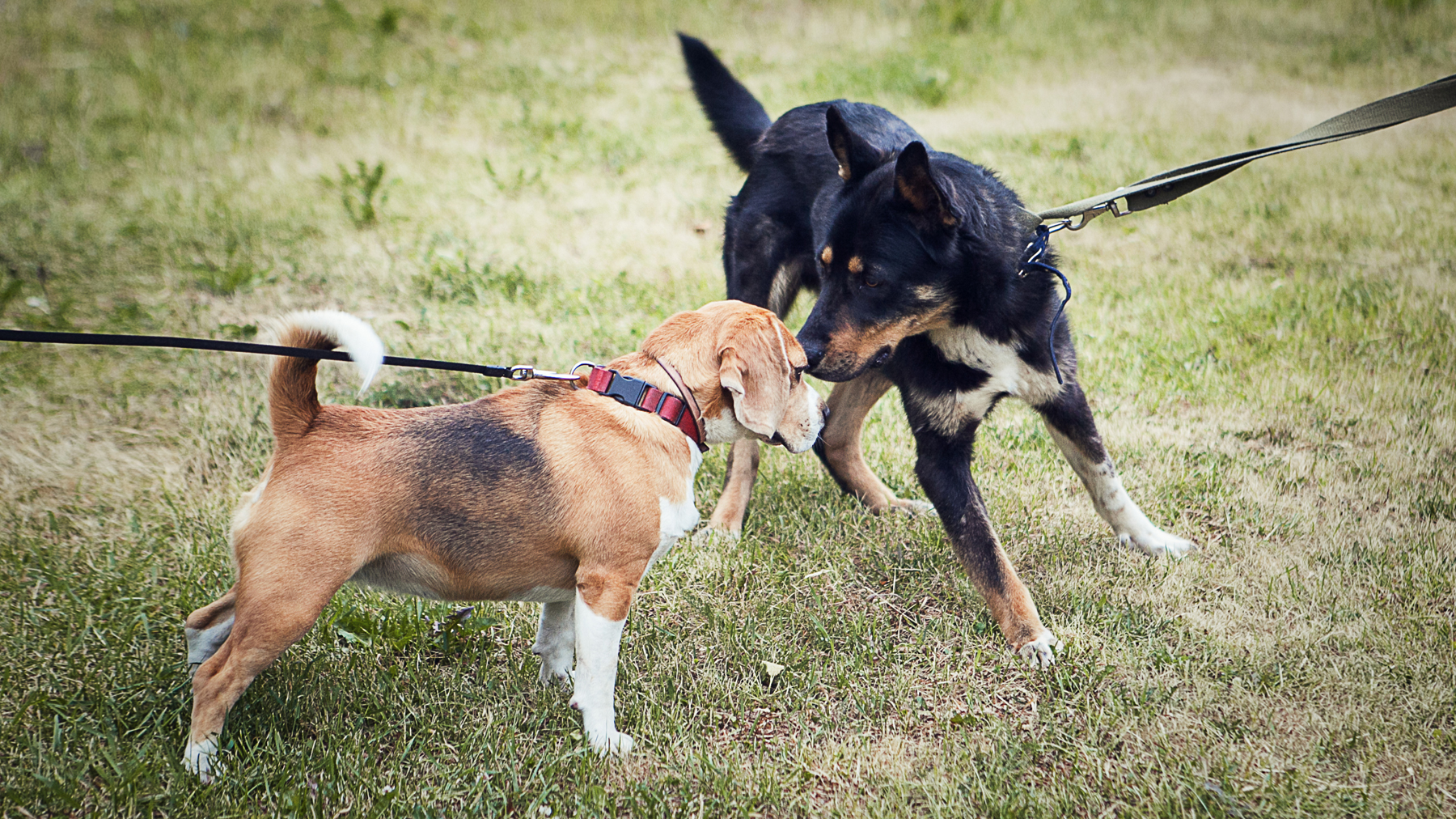Is your dog reactive to other dogs barking? Try this expert’s genius advice
Say goodbye to stressful walks and anxious encounters

Reactivity in dogs can be challenging, but when your four legged friend starts barking back at the neighbor's dogs through the fence or lunges at every passing pooch on your daily walk, it can become a real headache. Many dog owners face this issue, which not only affects their dog's behavior but also their own peace of mind.
There are many causes for reactivity in dogs and living with a dog who reacts strongly to the barks of other dogs can be one of the most challenging. Every neighborhood stroll can turn into a stressful event as you try to avoid other dogs and their vocal outbursts.
It's not uncommon for such reactions to escalate, leading to strained interactions with neighbors and the fear that your dog might hurt itself or others in its efforts to respond to the noise.
Alas, there's hope for dog owners dealing with reactive pups, thanks to the innovative approach shared by certified trainers at Good Dog Training. Their simple yet effective solution involves using YouTube videos of barking dogs to help desensitize your canine companion.
You can watch a demonstration of this below or continue reading to find out more...
A post shared by Good Dog Training (@gooddog.training)
A photo posted by on
All you need to do is search up barking videos on YouTube and gradually acclimatize your dog to the sound at home. You can start by playing these videos while offering some of the best dog treats.
The key is to create a positive association with the sound of barking. Your dog doesn't have to do anything except enjoy some treats while the barking plays in the background. When the barking stops, so do the treats.
"I do this for a minute or two everyday," note the Good Dog trainers, "If she were having a hard time I’d just lower the volume."
Get the best advice, tips and top tech for your beloved Pets
Over time, this can help your dog learn to tolerate barking without responding aggressively or anxiously. This technique is rooted in a well-established behavioral principle known as counterconditioning. It's a process of changing an emotional response to a particular stimulus.
In this case, you're helping your dog associate the sound of barking (the trigger) with positive experiences (receiving treats). Over time, your dog learns that the sound of barking predicts good things, and their reaction becomes less severe.
Remember that every dog is unique, and results may vary. Some dogs may show improvement relatively quickly, while others may require more time and repetition. Be patient and consistent in your efforts, and always prioritize your dog's comfort and well-being during these sessions.
Additionally, it's essential to consult with a professional dog trainer or behaviorist if your dog's reactivity issues are severe or causing safety concerns. They can provide tailored guidance and training strategies to address your specific situation.

Jessica holds a journalism degree from Cardiff University and has authored articles for renowned publications, including PetsRadar, Fit&Well, LiveScience, Runner's World, The Evening Express, and Tom's Guide. Throughout her career in journalism she has forged connections with experts in the field, like behaviorists, trainers, and vets. Through her writing, Jessica aims to empower pet owners with accurate information to enhance their furry companions' lives.
